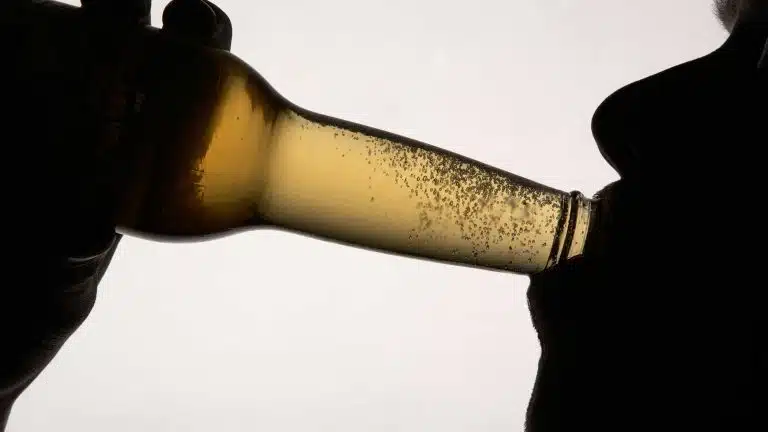What Does It Mean To Go On An Alcohol Bender?
- What Is An Alcohol Bender?
- Side Effects Of An Alcohol Bender
- Alcohol Bender Vs. Binge Drinking
- How To Prevent An Alcohol Bender

While some people may think a bender is similar to a night of binge drinking, it’s actually more serious than that. A bender takes place over a couple of days and can lead to alcohol poisoning and other adverse health effects.
What Is An Alcohol Bender?
An alcohol bender is a slang term used to mean an extended period of drinking alcohol, or a multi-day drinking binge. The person doesn’t eat or sleep very much. When someone “goes on a bender,” it means they consumed alcoholic drinks for at least 3 days at a time.
Those who go on a bender may miss work or school, become self-destructive, and even increase their risk of death.
Based on the findings by the Centers for Disease Control and Prevention (CDC), alcohol abuse contributes to at least 95,000 deaths per year from things like car crashes to liver failure.
Side Effects Of An Alcohol Bender
The side effects of an alcohol bender can be very serious. Heavy drinking over a few days can cause extensive health problems. The effects of alcohol on your liver are especially concerning since it has to metabolize it without real-time to recover.
The most common effects include:
- nausea
- racing heart
- high blood pressure
- dehydration
- black-outs
- short-term memory loss
- alcohol use disorder (AUD)
- alcohol withdrawal
- increased risk of liver disease and heart disease
- increased risk of sexual assault
More serious side effects of an alcohol bender include:
- vomiting
- seizures
- slow heart rate
- no gag reflex
- extremely low body temperature
- clammy or blue-tinged skin
- slow breathing
If you experience any of these effects, call 911 for emergency assistance.
Alcohol Bender Vs. Binge Drinking
People sometimes confuse a bender with binge drinking, but they aren’t the same thing. The main difference is the amount of alcohol consumed and the amount of time it’s consumed over.
Binge Drinking
Binge drinking is when someone drinks large amounts of alcohol (5 or more drinks for men and 4 or more for women) in a short period of time and brings their blood alcohol concentration (BAC) above legal limits.
Because the consumption of alcohol happens in a short period of time, it’s not a bender. Binge drinking isn’t safe, but it’s not as extreme as a bender.
Alcohol Bender
A bender takes place over at least 3 days but can last for weeks. It involves drinking past the point of intoxication. A bender may occur because the person wants to self-medicate for a physical or mental illness.
Other Differences
Some of the other key differences between an alcohol bend and binge drinking include:
- alcohol poisoning: those who binge drink are more prone to alcohol poisoning because of the amount binge drinkers consume at one time
- alcohol withdrawal syndrome: people on benders have an increased risk of suffering from alcohol withdrawal syndrome
- who’s drinking: college students and young adults are more prone to have issues with binge drinking than with benders
- consequences: although both have severe consequences, benders tend to result in job loss and other financial and legal issues because of how long they last
How To Prevent An Alcohol Bender
Since an alcohol bender can lead to alcohol poisoning and withdrawal syndrome, not to mention alcohol use disorder and other social consequences, treatment may be necessary to avoid any long-term effects of alcohol abuse.
Medical Detox
The first step in most substance use treatment is medical detox. This ensures the alcohol leaves your body and that you have a safe place to deal with withdrawal symptoms. Withdrawal symptoms are most likely to occur if your body has developed alcohol dependence.
Treatment providers will make sure you’re as comfortable as possible and give you medication for any adverse symptoms that come up.
Outpatient/Inpatient Rehab
From there, you can go to an inpatient or outpatient treatment center where you can learn new coping strategies and ways to stay sober.
The main component of treatment is therapy (individual and group), as well as support groups that you can continue to participate in after you’re done with the addiction treatment program.
If you or a loved one is struggling with alcohol addiction, call our helpline today to find the treatment options that are right for you.
Written by Ark Behavioral Health Editorial Team
©2024 Ark National Holdings, LLC. | All Rights Reserved.
This page does not provide medical advice.
Alcoholism: Clinical and Experimental Research - High-Intensity Drinking Versus Heavy Episodic Drinking: Prevalence Rates and Relative Odds of Alcohol Use Disorder Across Adulthood
Centers for Disease Control & Prevention (CDC) - Binge Drinking
Centers for Disease Control & Prevention (CDC) - Excessive Alcohol Use
National Institute on Alcohol Abuse and Alcoholism - NIAAA Council Approves Definition of Binge Drinking
National Library of Medicine: MedlinePlus - Alcohol Use Disorder (AUD)


Questions About Treatment?
Ark Behavioral Health offers 100% confidential substance abuse assessment and treatment placement tailored to your individual needs. Achieve long-term recovery.
100% confidential. We respect your privacy.
Prefer Texting?
Our friendly support team is here to chat 24/7. Opt out any time.







 Learn More
Learn More








